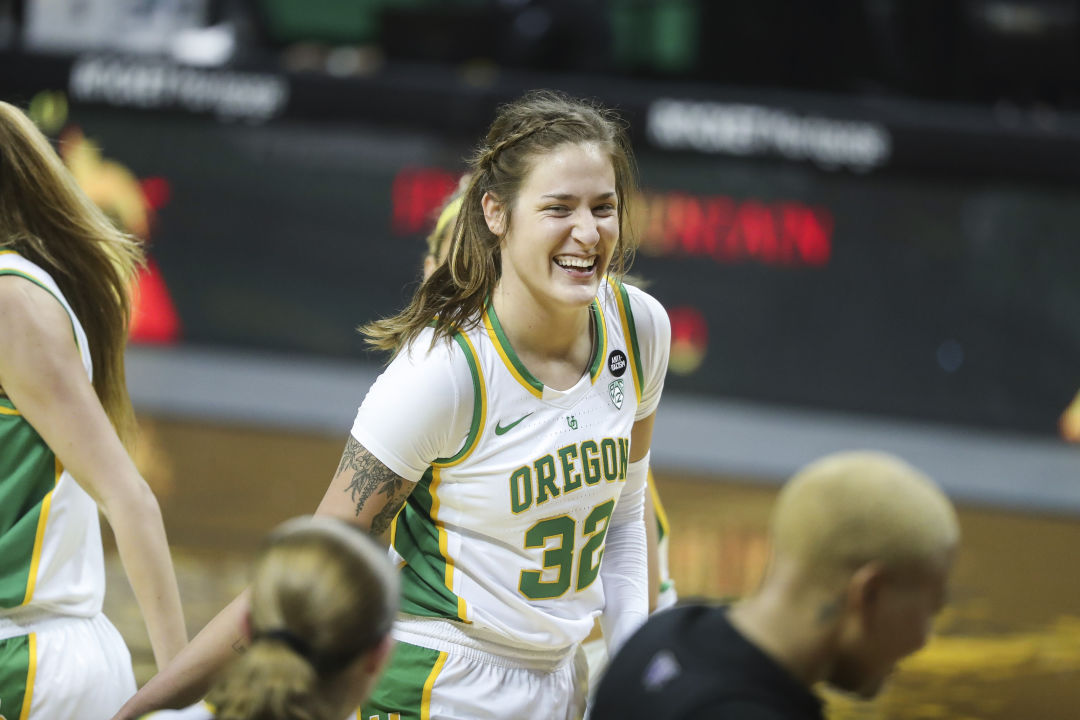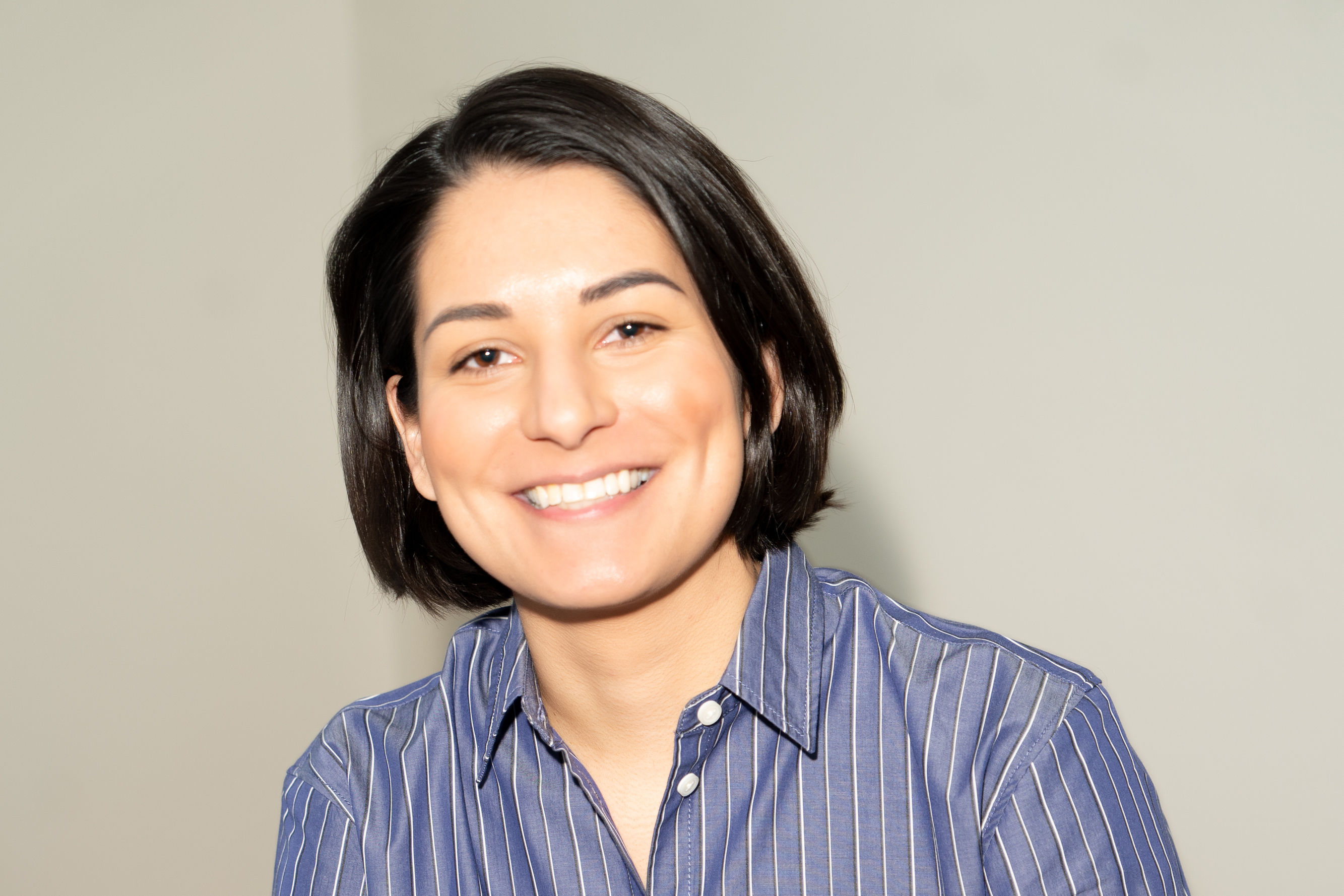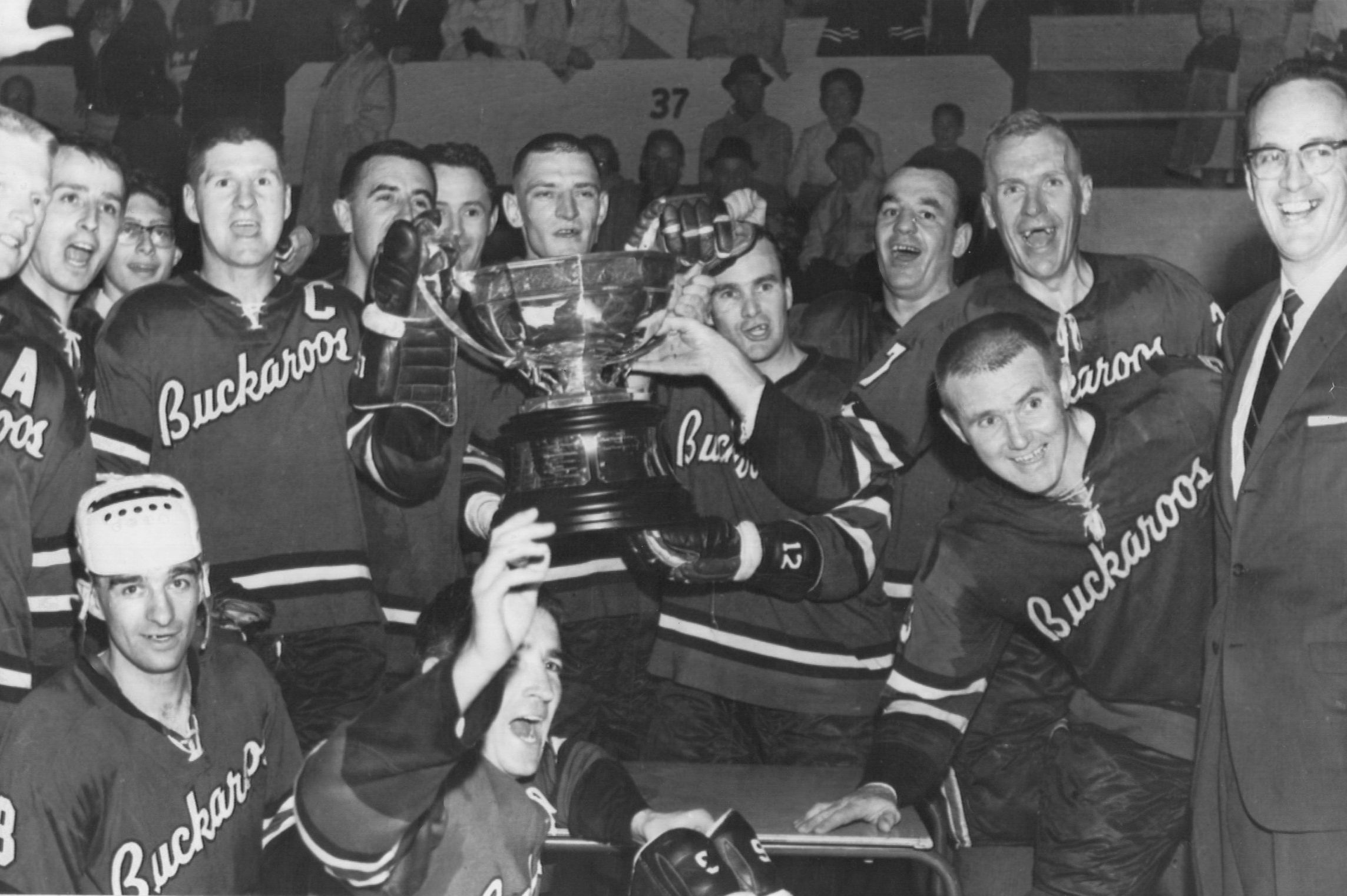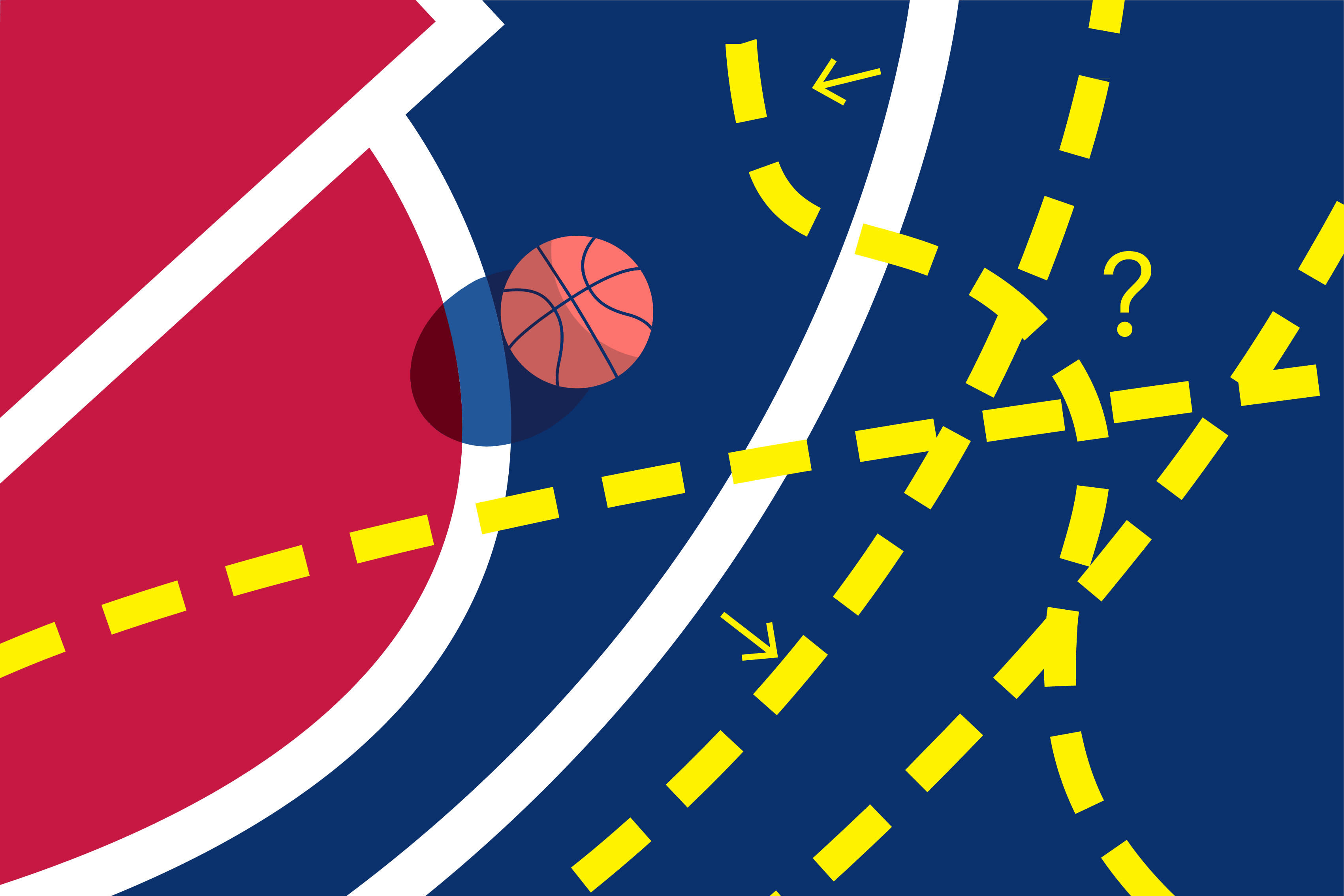UO's Standout Women's Basketball Player Sedona Prince just Dropped a Merch Line

UO basketball stand-out Sedona Prince has launched her own line of apparel.
Image: Eric Evans/GoDucks.com
Q: When is a limited merch drop so much more than just a merch drop?
A: When it is coming from a rising star collegiate athlete, who stands to benefit from the profits, that’s when.
We’re speaking in this case about one Sedona Prince, the women’s 6-foot-7 basketball supernova from the University of Oregon, whose season officially kicks off November 9 against Idaho State in Eugene.
In the last year, Prince has built an enormous following on social media fueled both by basketball fans and those who are cheering her activism off the court. She garnered the most attention for a video she posted to TikTok and Twitter last March shaming the NCAA for treating its female athletes shabbily during its annual tournament, from providing meager weight room equipment to administering cheaper, less reliable COVID-19 tests. (A follow-up investigation found enough damning evidence of persistent gender inequalities that the NCAA has announced plans for a host of changes in 2022.)
But it is her advocacy for college athletes to be allowed to profit off their own name, image, and likeness during their collegiate careers that could have even broader effects.
Prince isn’t the first college athlete to fight for this right, but she was one of the plaintiffs in a scale-tipping class action lawsuit brought in summer of 2020 that opened the floodgates and has since been amended to seek back-pay for athletes who've lost out on the chance to make revenue during their collegiate careers. Since then, the Supreme Court has ruled in favor of college athletes being allowed to market themselves. Following that, the NCAA itself bowed to the inevitable, instituting a policy as of July 1 of this year that lets hundreds of thousands of college athletes—the vast majority of whom will never make it to the professional level—become brand ambassadors, get paid to promote items on social media, run their own training camps and, in Prince’s case, be the face of their own line of apparel.
"I would imagine she's thinking beyond her time in Oregon, or even basketball," says Craig Leon, who teaches at the Warsaw Sports Marketing Center at the University of Oregon. "How can she continue to build a personal brand? I think it will always be somewhat tied to basketball, but beyond that, what does the Sedona Prince brand stand for? There's clearly an audience out there that is interested in being able to be a part of that story."
(In fact, Prince often sports Oregon gear in her TikToks—a free gift to the university, given her popularity on a platform frequented by the exact audience, teens, who are considering where they might wish to matriculate.)
It’s a gold rush out there, and Leon predicts some growing pains under the new rules in the coming months.
"(Student-athletes) are getting reached out to all the time on their social media platform, saying, Hey, we're with Brand X—would you like to do a deal with us?," Leon says. "It's tempting for somebody who's young to say, 'Hey free product!' or to say yes, without really thinking through whether this is a good brand fit, or what happens if this company gets caught up in something, does that then reflect poorly on me?"
There’s also no shortage of people looking out for this new crop of influencers. Case in point: last Thursday’s announcement from no less than Phil Knight that he was an investor in a new company aiming to help athletes from the University of Oregon make bank while they are still in school.
That brings us back to Prince, who has been vocal in the past about medical bills piling up due to a traumatic injury sustained while playing for USA Basketball.
“I had to undergo several surgeries, and my bills were in the tens of thousands of dollars,” she told NBC Sports in June of 2020. “And on top of that, I was stressed about the potential of my injuries keeping me from playing again. Even with all of this facing me, I was still unable to receive any outside compensation from endorsements or social media because of the NCAA. It's unfair. For all the hard work college athletes put in, for all the risks we take and injuries we sustain, and for all the money we generate, we should at least be able to share in the profits that can be made off of our own names, images, and likenesses. If not us, who can rightfully claim that and profit from it?”
That background makes her announcement late last week—that a series of limited-edition tee-shirts and hoodies, variously bearing her name, mantra (strong and powerful, which she says she repeats to herself before every game), initials, replicas of her tattoos and/or number (32) were available for preorder in a window that was open for only five days before slamming shut—all the more meaningful. Whatever the sales, Prince will be the one who gets to keep the net income.
On TikTok, where she now has 2.7 million followers, Prince hailed the merchandise drop with a video which reflected her glee at the milestone, after plenty of bumps along the way, and a comment that she’d sign any shirts fans wore to games this season.
“I’m making merch, baby! Let me show you,” she says, adding, “I’ve been working on this stuff for almost a year now. I’ve been preparing. I’m really excited for this one.”
@sedonerrr If you come to one of the games with one of the shirts as well I will also gladly sign it. OCTOBER 1st!!!!
♬ Its Always Sunny in Philadelphia - Temptation Sensation - Main Theme - Geek Music




